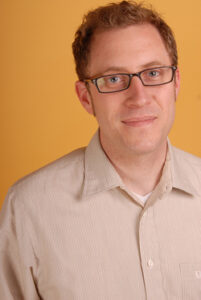9/12/2024 Sean Polyn: Capacity not required: A long-term memory model that exhibits key signatures of working memory
CCN Brown Bag
 Sean Polyn, PhD
Sean Polyn, PhD
Associate Professor of Psychology
Associate Professor of Psychiatry
Date: Thursday, September 12, 2024
Time: 12:10PM-1:00PM
Location: 316 Wilson Hall
Capacity not required: A long-term memory model that exhibits key signatures of working memory
The idea of a limited-capacity short-term storage system as a key component of the human memory system has a long history going back to William James’ theory of primary and secondary memory. During the cognitive revolution of the 1960s Atkinson & Shiffrin developed a computational framework for this distinction with their interactive short-term and long-term memory systems. They pointed to certain empirical effects, e.g., the recency effect in immediate free recall, as supportive of the existence of a short-term store. In the verbal memory literature, the theoretical necessity of a limited-capacity short term memory system was questioned as early as the mid-1970s, with researchers showing that the recency effect in immediate free recall had characteristics inconsistent with a short-term storage system. However, in the visual memory literature the short-term storage system persists as an explanation for performance limitations in visual working memory tasks, e.g., in the slot-based working memory system promoted by Luck & Vogel. In the study of visual working memory, it is viewed as critical to show a capacity limit in storage as a way of demonstrating that one is measuring the limited-capacity working memory store and not the unlimited capacity long-term memory store. Here we (Polyn & Woodman, submitted) show that the several of the set size effects often used to validate the assumption that one is studying working memory are also observed as a natural result of the dynamics of contextual models of long-term memory storage and retrieval. We discuss how the situation motivates a re-examination of unified models of human memory.
Questions? Contact Isabel Gauthier.